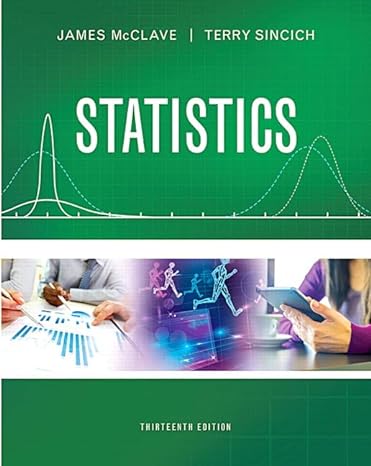Unconscious self-esteem study. Psychologists define implicit self-esteem as unconscious evaluations of ones worth or value. In contrast,
Question:
Unconscious self-esteem study. Psychologists define implicit self-esteem as unconscious evaluations of one’s worth or value. In contrast, explicit self-esteem refers to the extent to which a person consciously considers oneself as valuable and worthy. An article published in Journal of Articles in Support of the Null Hypothesis (Mar. 2006)
investigated whether implicit self-esteem is really unconscious.
A sample of 257 college undergraduate students completed a questionnaire designed to measure implicit self-esteem and explicit self-esteem. Thus, an implicit selfesteem score 1x12 and explicit self-esteem score 1x22 were obtained for each. (Note: Higher scores indicate higher levels of self-esteem.) Also, a second questionnaire was administered in order to obtain each subject’s estimate of his/her level of implicit self-esteem. The score obtained from this questionnaire was called an estimated implicit self-esteem score 1x32. Finally, the researchers computed two measures of accuracy in estimating implicit selfesteem:
y1 = 1x3 - x12 and y2 = x3 - x1 .
a. The researchers fit the interaction model E1y12 = b0 + b1 x1 + b2 x2 + b3 x1 x2. The t-test of the interaction term, b3, was “nonsignificant,” with a p@value 7 .10. However, both t-tests of b1 and b2 were statistically significant 1p@value 6 .0012. Interpret these results practically.
b. The researchers also fit the interaction model E1y22 = b0 + b1 x1 + b2 x2 + b3 x1 x2. The t-test on the interaction term, b3, was “significant,” with a p@value 6 .001. Interpret this result practically.
Step by Step Answer:

Statistics Plus New Mylab Statistics With Pearson Etext Access Card Package
ISBN: 978-0134090436
13th Edition
Authors: James Mcclave ,Terry Sincich





